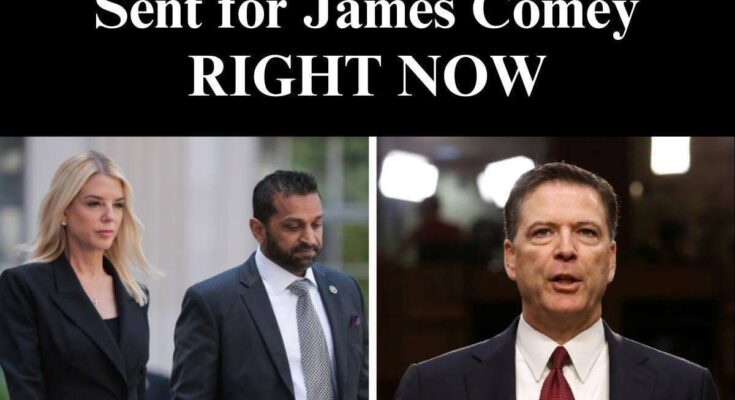A seemingly innocent social media post by former FBI Director James Comey has stirred controversy and triggered a formal federal review after online observers interpreted it as a possible veiled threat toward former President Donald Trump.
The post—now deleted—featured a beach photo showing seashells arranged to read “86 47,” accompanied by the caption, “Cool shell formation on my beachwalk.” While it might have appeared harmless at first glance, many quickly pointed out that “86” is sometimes used as slang for “eliminate,” and “47” is widely associated with Trump’s potential return to the White House as the 47th president.
The cryptic image went viral, sparking widespread debate. Some dismissed it as a coincidence or tone-deaf joke, but others viewed it with alarm, citing Comey’s former position as head of the FBI and his awareness of how coded messaging can be perceived in volatile times.
Comey responded shortly after, saying he was unaware of the slang meaning and had no intention of suggesting anything harmful. However, the post had already gained attention at the highest levels of federal law enforcement.
FBI Director Kash Patel confirmed that the agency is collaborating with the Secret Service to review the matter. Homeland Security Secretary Kristi Noem added that her department is also involved to ensure all protocols concerning the safety of former presidents are followed.
While no formal charges have been filed, security experts say the incident highlights the unique responsibilities of high-profile figures in the digital age. Former intelligence officials noted that even seemingly benign messages can be misinterpreted, especially when they come from those with backgrounds in national security.
“Words and symbols matter, especially when they come from people in positions of influence,” said one former federal official. “Even unintentional messages can carry consequences.”
As the review continues, federal agencies remain focused on ensuring clarity and public safety. For many, the situation serves as a modern reminder: in a time of deep political divides and rapid online discourse, even a beach photo can become a flashpoint for national concern.



